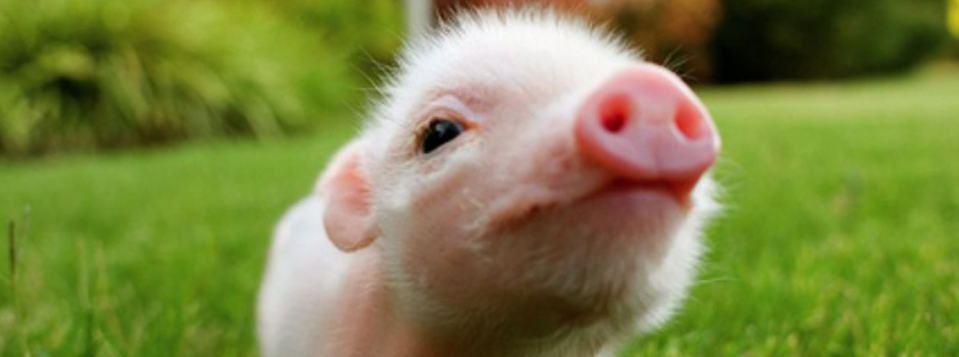
Britain’s National Pig Association has added its voice to the chorus of criticism of a Chinese firm’s plans to produce gene-edited micro-pigs and sell them for around £1,000. “We question the ethics of genetically modifying animals just to create a fashion accessory,” says the association’s senior adviser, Dr Georgina Crayford.
NPA is urging showbiz personalities in Britain to set an example of good animal welfare by boycotting the market in micro-pigs, regardless of whether these so-called “tea-cup” pigs have been created by genetic engineering or selective breeding.
“The current trend for keeping micro-pigs as fashion accessories could be perpetuating serious animal welfare problems,” said Dr Crayford. “Some miniature pig lines were originally developed for medical research and can carry genetic mutations responsible for deformities linked to animal dwarfism, such as deformed skulls and weak limbs.”
Other lines of micro-pig have been developed by successively breeding from litter runts, which can lead to expensive vet bills caused by genetic weaknesses and susceptibilities, including walking difficulties and obesity.
Continued breeding of micro-pigs may compromise animal welfare and should not be encouraged, says NPA. Pigs generally do not make good house pets because they are programmed to root and chew, so they can be destructive if kept in a house or smart town garden.
A further problem for dilettante pig-keepers is ensure the animals are fed properly, says NPA chairman Richard Lister, a North Yorkshire professional pig producer. “Because of the risk of spreading disease, it is illegal to feed pigs raw or cooked catering waste, and that includes all waste from household kitchens — and the penalty is a fine or prison sentence of up to two years.”
Micro-pigs pose a risk to the nation’s food supply, as they can catch and spread diseases such as foot-and-mouth but they are harder to trace as some owners are not be aware of the legal requirement to register them.
Another risk for unsuspecting buyers is they may be sold what appears to be a micro-pig but is in fact just a small pig which in time will grow to 150-200 kilos.
